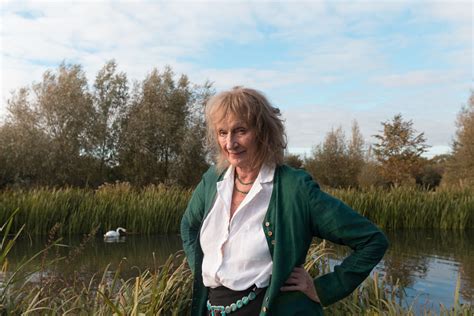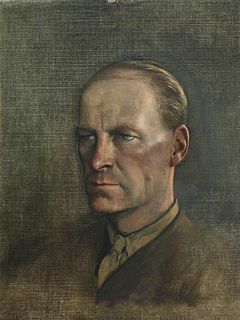A Quote by Amanda Feilding
I've always been an outsider. I grew up in an isolated house surrounded by three moats. There was no money. I left school early. It was a world of its own. I became fascinated by consciousness because there was nothing much to do except mooch about and think. I had the occasional mystical experience. I studied consciousness, reading all the books I could get.
Related Quotes
I grew up in the midst of poverty but every black kid that I knew could read and write. We have to talk about the fact that we cannot educate for critical consciousness if we have a group of people who cannot access Fanon, Cabral, or Audre Lorde because they can’t read or write. How did Malcolm X radicalize his consciousness? He did it through books. If you deprive working-class and poor black people of access to reading and writing, you are making them that much farther removed from being a class that can engage in revolutionary resistance.
I grew up in a very British family who had been transplanted to Canada, and my grandmother's house was filled with English books. I was a very early reader, so I was really brought up being surrounded with piles of British books and British newspapers, British magazines. I developed a really great love of England.
Of course, mysticism is very hard to isolate because, given the kind of consciousness that I was sort of instructed in as religious consciousness; that borders on mysticism so closely that it's hard to know whether you qualify or not, or whether mysticism is artificially isolated when it is treated as a separate thing from experience. Obviously, mysticism can be a form of madness, but then consciousness can be a form of madness.
Consciousness-one level is understanding where we are in space. Consciousness two is where we understand our position in society: who's top dog, who's underdog and who's in the middle. And type-three consciousness is simulating the future. And type-three consciousness, only humans have this ability to see far into the future.
You are so accustomed to think of yourselves as bodies having consciousness that you just cannot imagine consciousness as having bodies. Once you realize that bodily existence is but a state of mind, a movement in consciousness, that the ocean of consciousness is infinite and eternal, and that, when in touch with consciousness, you are the witness only, you will be able to withdraw beyond consciousness altogether.
The science is my passion, the policy work my social duty. I think there's no other issue in the world that causes such suffering and which could be improved simply by rethinking. Millions of people are in jail just because they used consciousness-altering substances without causing any harm to others. I think it is an affront to human rights and dignity. What you do with your consciousness is your own business.




































